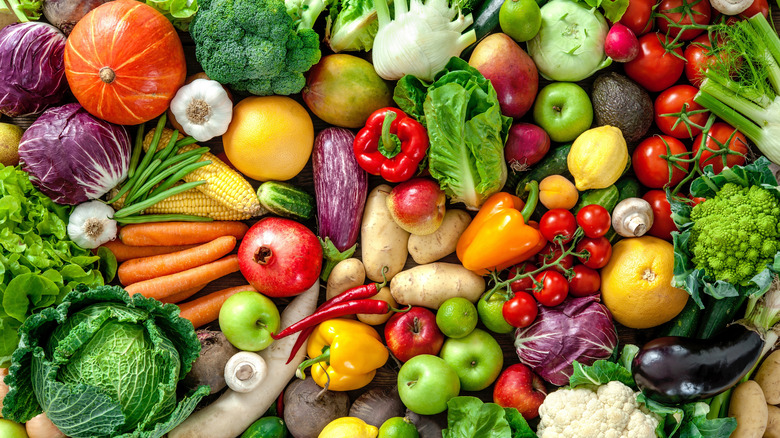Why A Low-Histamine Diet Probably Won't Improve COVID Symptoms
The effects of COVID-19 can be ongoing and last far longer than a hospitalization or a 10-day quarantine. Long COVID is a common name given to the long-term lingering symptoms of COVID-19; the CDC refers to this as post-COVID conditions. This can include a host of symptoms that are either ongoing or sometimes new issues such as shortness of breath, coughing, fatigue, brain fog, muscle pain, heart palpitations, and other multiorgan conditions. Many people experience these symptoms after being infected with COVID-19, but some still feel the effects even after testing negative and for months after, according to the Mayo Clinic.
While there is no cure for the COVID-19 virus, the internet has offered a plethora of ways to treat and alleviate symptoms (though be sure to consult a medical doctor for the most reliable remedies). With the devastating effects of COVID-19 in the long term and in the short term, it's understandable that people would want to try anything possible to find some relief from symptoms. Thankfully, there is something that can be done to decrease the risk of long COVID. A study from The Office for National Statistics in the U.K. found that getting a two-dose COVID vaccine two weeks before testing positive led to a 41% decrease in long COVID 12 weeks later. Aside from getting vaccinated, can other factors help lower the risk of getting long COVID?
The diet is hard to follow and unproven to help
Like many types of illness, diet may keep you healthy and also recover from virus-related illness (via Cleveland Clinic). One specific diet that has gained some traction recently in the COVID and long-COVID community is the low-histamine or anti-inflammatory diet. Histamines are inflammatory chemicals found in foods and in the body; they help regulate the immune response to foreign items in the body to fight off infection. Too many histamines, though, can cause an inflammatory reaction (via Medical News Today.)
According to the Zoe Covid study, the idea is that a diet meant to prevent inflammation, such as the low-histamine diet, can help mediate the inflammation responsible for many COVID symptoms. However, there isn't much research to support this assertion. Elaine Anderson, a National Health Service registered dietitian, reports that the low-histamine diet can be incredibly difficult to follow (via British Dietetic Association). For some with intense COVID-19 cases or long COVID, following this extremely restrictive diet can be too difficult while also managing symptoms. This is especially true when incorrect or conflicting information about what is or isn't allowed on the diet is all over the internet.
Without concrete evidence of its efficacy, it's often more trouble than it's worth. As Healthspan UK suggests, things like whole fruits and vegetables, lots of water, and extra doses of vitamins and minerals are much of what can help maintain a healthy lifestyle and immune system, regardless of COVID status.

